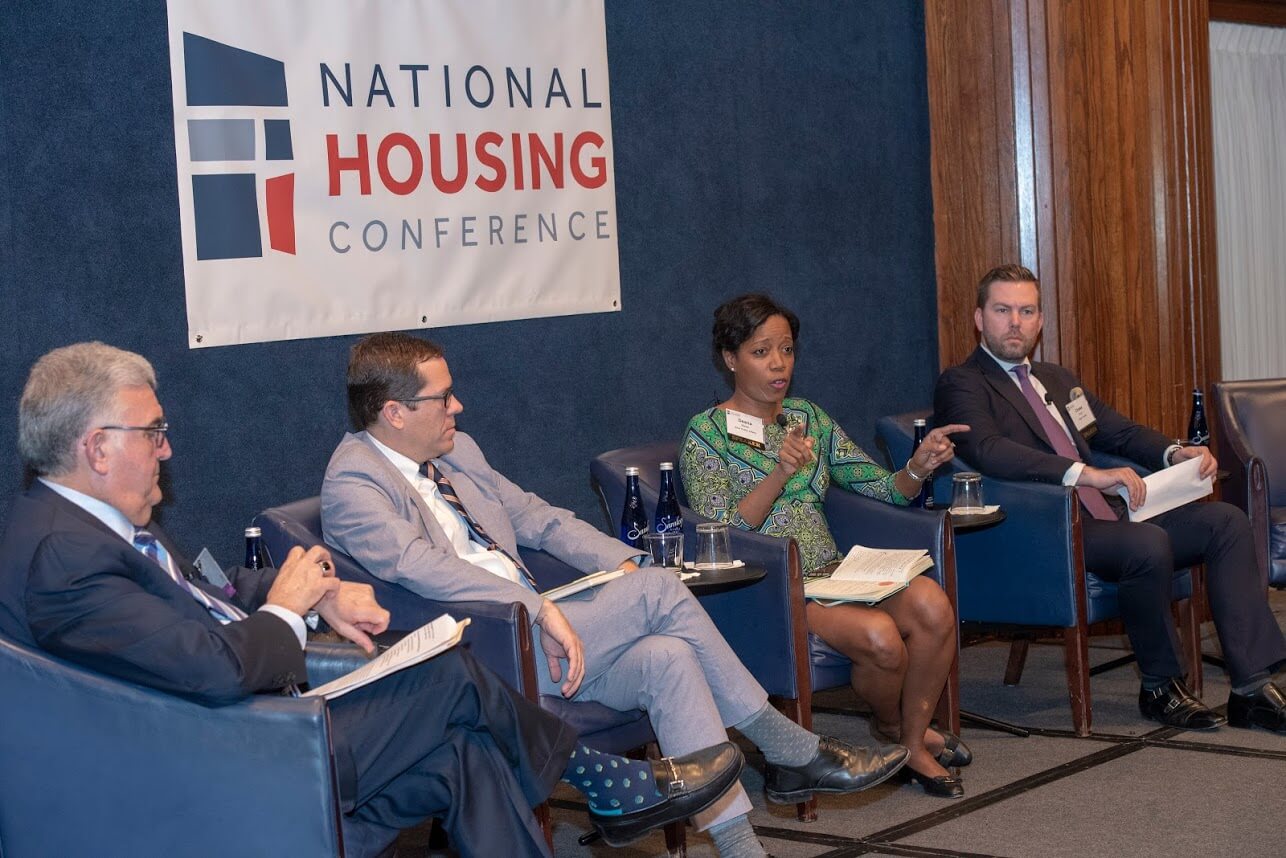
Next week, NHC will release its “Paycheck to Paycheck” database at our Solutions for Housing Communications convening at the National Press Club in Washington, D.C. from 8 a.m. to 4:30 p.m. on Tuesday, April 16. If you or someone on your staff haven’t registered for the Solutions convening yet, I encourage you to do so. Solutions for Housing Communications is the only national convening designed for housing communicators. Breakout sessions will address communications tools and trends housing communicators rely on for their day-to-day work. A networking reception will be held at The Hamilton restaurant between 4:30 and 6:30 p.m.
Some of the nation’s leading experts on housing and communications will discuss key topics like maximizing digital media strategies to drive social change, building alliances and driving community engagement and communicating on the decline in black homeownership and income disparity, among others to help housers rethink how we communicate with policymakers, the media, stakeholders and constituents. Leading experts like Antoine Thompson, president and CEO from the National Association of Real Estate Brokers, Chris Vincent from Habitat for Humanity International, Andrew Ackerman from the Wall Street Journal, Bruce Johnson from WUSA9 news and Katy O’Donnell from Politico will be there. You can register for the convening here.
The new 2018 edition of “Paycheck to Paycheck” focuses on the affordability challenges workers face in five job categories in the construction industry: carpenters; electricians; heating, ventilation, and air conditioning (HVAC) mechanics; maintenance workers and plumbers. These jobs are critical to increasing the supply of affordable housing. They are also an important part of any healthy local economy. Many of these jobs represent the core of the modern middle class, others are essential entry point, where workers can convert skills into increasingly higher paying opportunities. Each of these five occupations require a high school diploma and training in a technical or vocational program for entry- level jobs. Jobs that offer a salary high enough to afford housing costs without a four-year college degree are increasingly rare. Yet, workers in four of the five job categories are only able to afford a median-priced home with a 10 percent down payment in half of the markets in which they work. Other occupations continue to struggle to find affordable housing as well. A police officer in Seattle is unable to house their family in a two-bedroom apartment. A one-bedroom apartment in Boston is out of reach for local firefighters. A child care worker in Los Angeles would need to earn nearly five times as much to afford homeownership. An elementary school teacher with children would need to make $25,000 more to simply rent a one-bedroom apartment in San Francisco. The problem is hardly limited to high cost markets, however.
The 2018 database has been expanded to 259 metro areas for over 80 occupations, allowing you to do an even more thorough analysis of housing affordability in your market.
I’m looking forward to seeing many of you at Solutions.

